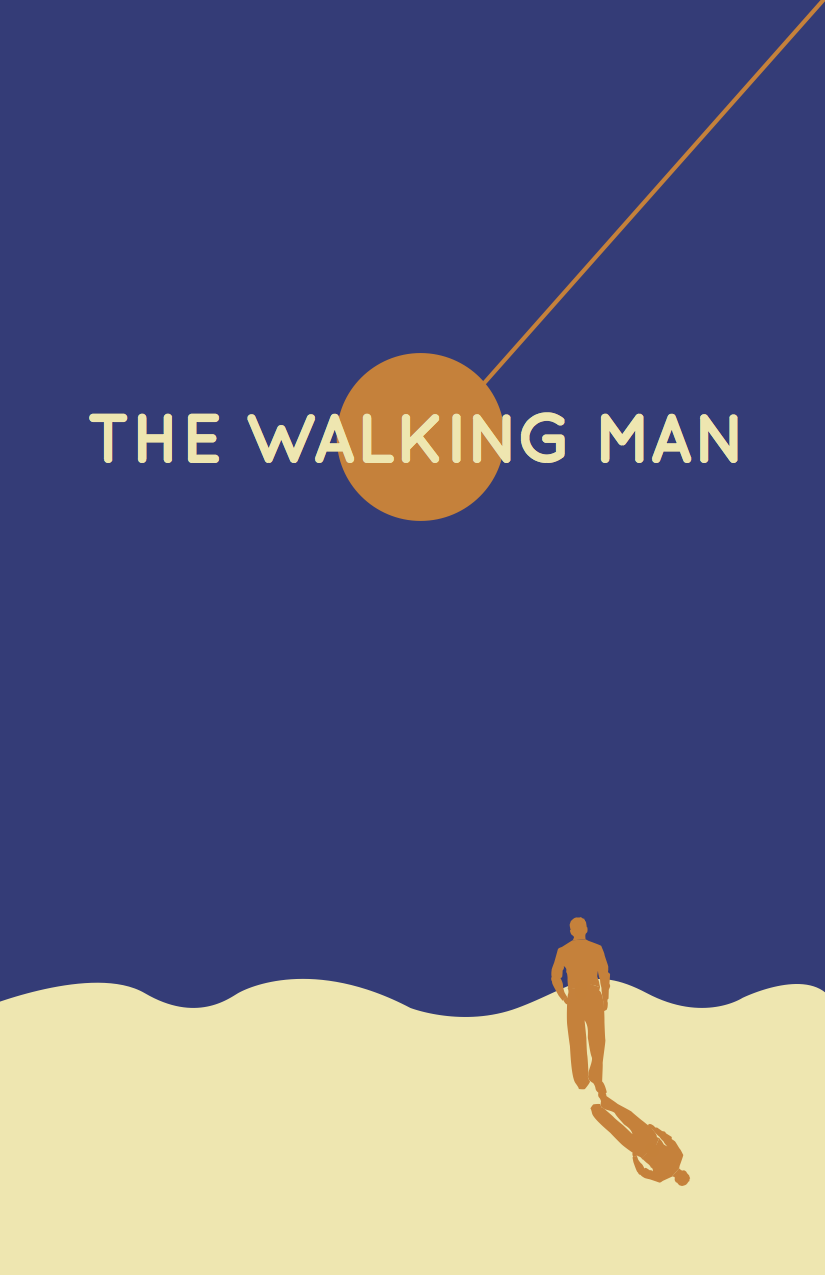“Lemme just get this out of the goddam way; I’m nervous as all hell. Nervous because you may or may not relate to the mess that follows.”
This is how Paul Dore’s debut novel, The Walking Man, opens: an intimate conversation with the narrator, our unnamed protagonist. A bundle of nerves, the character spills out his anxieties, struggles with depression, fears of opening up to people, of never finding love.
This book is that over-sharing friend we all have, and yet readers should not be intimidated or scared off by its candidness.
“Just hold on. Keep holding on. Stay with me,” the character urges.
Keep reading. Don’t let emotion scare you. It’s worth it; trust me.
Toeing the line between fact and fiction, The Walking Man bends reality to reach some pretty odd places. The story follows the protagonist’s journey of self-discovery after the ending of a long-term relationship. The reader is taken from the deserts of Jordan, in and out of failed relationships, to a town of vegetarians, on a joy ride with a sassy nonagenarian and through a medieval re-enactment.
As the protagonist walks through all of these situations and settings, the reader begins to understand why the relationship ended. In the end, the character learns how to find love in others through finding himself.
When asked about how much of the story is real, Dore posited that reality isn’t what really matters when it comes to his book. “How much does it really matter? I hope that if I do my job as a writer, that there is that suspension of belief that you can kind of just go with the story.”
The Walking Man was never intended to be more than a short story, but Dore said that it just kept growing from there. In a matter of speaking, it just sort of walked away from him, took him on a trip. Mind the pun…I simply just had to. “When I started this book, it was probably about four or five years now. I just sat down and started writing, and I thought it was just going to be a little short story and then it kind of kept growing and kept going,” Dore said.
While the setting and situation is not always believable, the character’s sentiments are. Described by Iguana Books and Dore himself as “weird fiction,” the situations are meant to be a little quirky and out there, just like the main protagonist.
The reader lives in his head for over 200 pages, seeing and feeling the world as he does, and in such specific detail. This creates a deep understanding between the author, character and reader.
“If you’re still following me, if you’re still here — You are my people and I have been looking for you my entire life.” Oddly enough, the specific details in the writing makes the book more universal for readers. The more the character opens up, the more the reader can get into the book.
The book is full of relatable self-deprecating humor. “I’m thinking of starting a new business called the Intermediary. You can hire me to be in a relationship for a limited amount of time…and I’ll help you work through certain problems that keep you from finding the perfect mate. Commitment phobic? Not after being with the Intermediary,” says the character.
However, sad truths hide behind the humor in this book. The character comes to find himself by opening up within the pages. Unfortunately, he puts himself through a lot of pain before he gains a more enlightened understanding. “Maybe I’ve lived alone too long, and my ability to establish a stable and healthy relationship breaks down because I’m so set in my ways. Maybe it’s too late for me,” he wondered.
The book is self-reflexive, and yet, it is somehow inclusive. It is predominantly focused around a character that Dore says is very much like himself. A notorious over-thinker myself, it was easy to empathize with the character. I ended up learning a lot about dealing with my own fears and anxieties through his experiences. The Walking Man is essentially a self-help book in the form of post-modern prose.
Sometimes, you just need a good long walk to think things over. Sometimes you need to go around the block, other times you trek 128 kilometres from Toronto to Niagara Falls. This all depends on how much you need to sort through.
That’s what Dore did for this book. He wanted to understand what the character would be going through. “I just decided one day that I actually needed to do this. I needed to go on a really long extended walk to just kind of understand the physicality of it and what happens…I was able to just, I think, add a bit more life to it through just going through that experience,” said Dore. Given my cardio, I’m glad all I had to do was sit and read.
This book covers a wide range of topics and situations from feisty one-armed old ladies, to the heat of the Jordanian deserts and what novel wouldn’t be complete without a talking dildo. The character describes his story as such: “There’s heartbreak, love, loss, long walks, fear, anger, and a talking dildo. Can’t forget the dildo.”
Dore invites his readers to trudge through the mind of a character much like himself, and perhaps take the time to think about their own lives. “There’s a lot of personal stuff in there but I hope when people read it, it challenges them or encourages them to think about these things in their own life and maybe share their own stories themselves.”
Lauren Scott is the books intern for rabble.ca and is currently studying Journalism at Carleton University. She loves post-modern literature and anything with a bit of sass. Originally from a small town just outside of Toronto, Lauren now lives in Ottawa. Follow her on Twitter @laurenscawt



